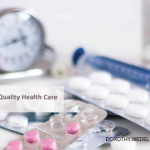“Students can make connections between rheumatology and other areas of medical knowledge to show that it’s relevant in cases beyond rheumatology,” Dr. Lin says. “We hope to engage more medical students by doing this.”
In Phase 2, the next 12 months, additional aspects of rheumatology are introduced through integrated clinical settings. “Students continue to engage in expanding their knowledge of basic science through online modules and lectures,” Dr. Lin says. “Compared [with] a traditional curriculum, this phase continues to place a large emphasis on the foundation of basic science while students complete their clinical rotations.”
Phase 3, the final 18 months of the program, involves further clinical experiences tailored to each student’s career and specialty interests. Students can pursue electives and opportunities for further development in their desired specialty. Students also take basic science electives geared toward their specialty-specific interests. This aspect is in contrast to a traditional curriculum, in which students may continue to choose various clinical rotations of interest.
New Accreditation Process
As the associate director for the rheumatology fellowship program, a role she assumed in August 2016, Dr. Lin is deeply involved in preparing for a new form of accreditation by the Accreditation Council for Graduate Medical Education (ACGME), which is responsible for accrediting the majority of graduate medical training programs for physicians in the U.S. In the past, ACGME certified programs by conducting site visits every two to five years, evaluating whether an institution complied with ACGME common program requirements and specialty specific requirements. If programs did not comply or make the advised changes, they were forced to close.
The new program, Next Accreditation System, moves more of the evaluation process from ACGME review committees to a program’s stakeholders (i.e., its faculty members, residents and fellows).
“It requires us to go through a multi-step, self-evaluation process,” Dr. Lin says. “This [process] helps identify strengths and areas to improve upon. Although the previous process ensured that the [medical education] programs complied with minimum requirements, it wasn’t individualized. The new self-study program recognizes that programs focus on different areas—whether academics, clinical practice or research—and encourages programs to strive for excellence in their own areas of focus.”
ACGME began the pilot accreditation program in 2015, and accreditation is now required only every 10 years. Only a few rheumatology programs have completed the new accreditation process.
“It’s a hot topic at our program and many others, because we aren’t sure what to fully expect until we go through it once,” Dr. Lin concludes.


